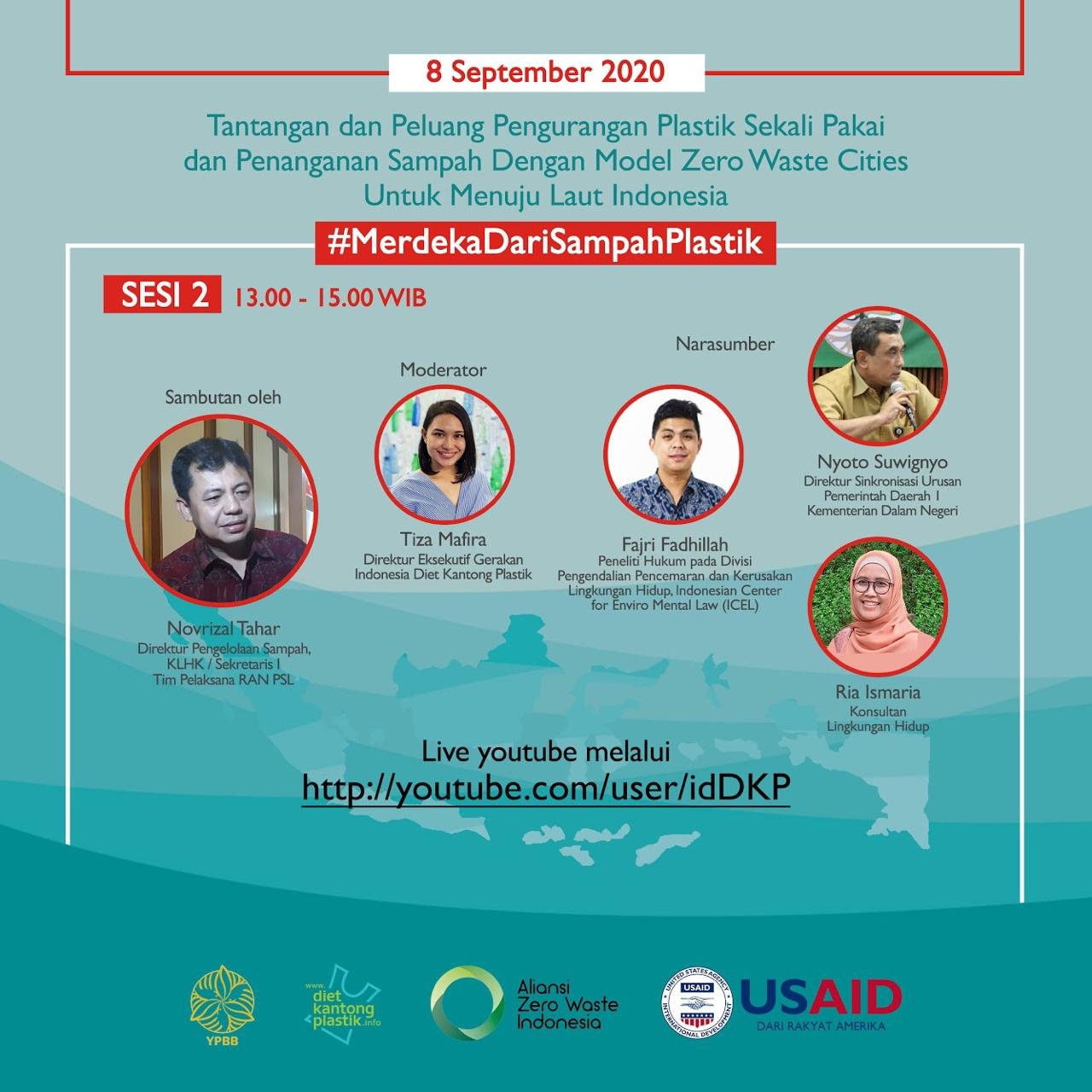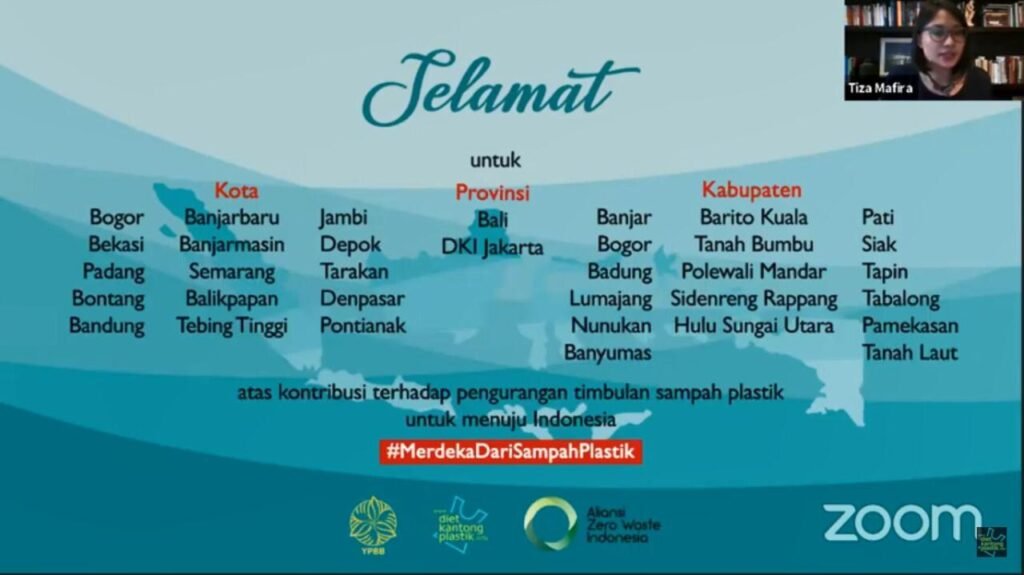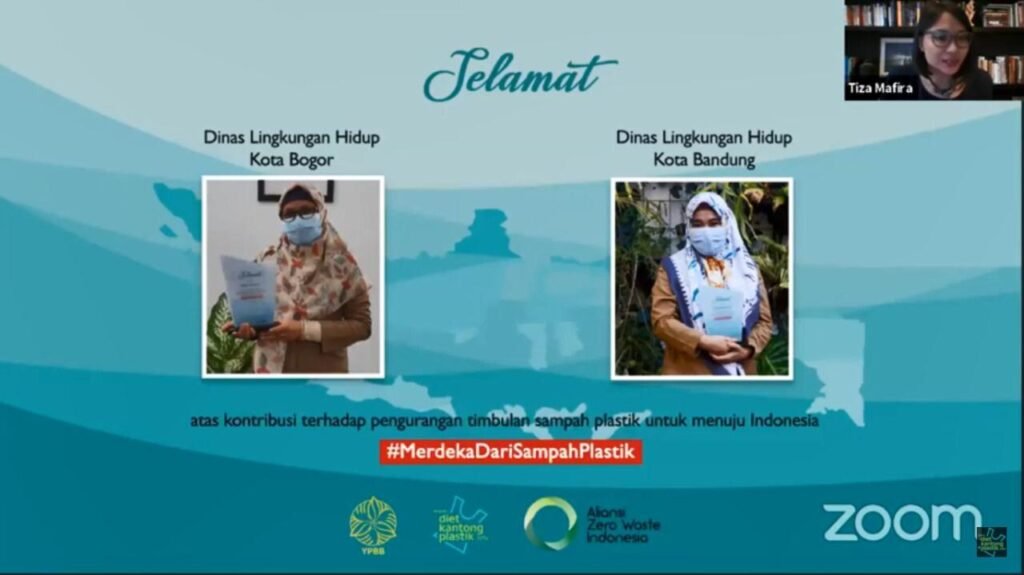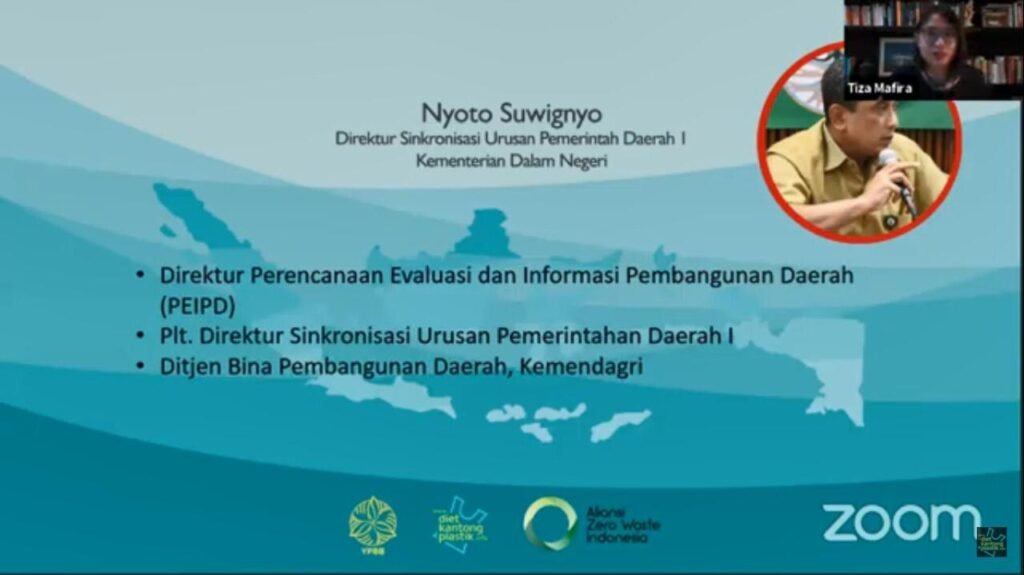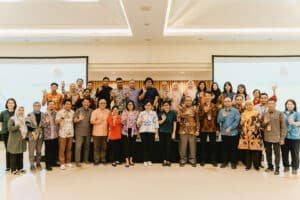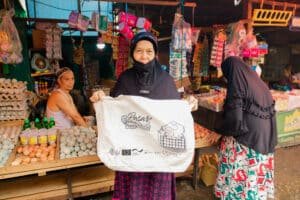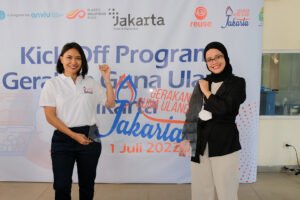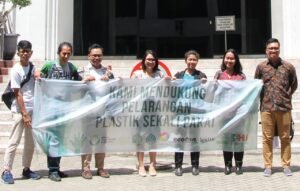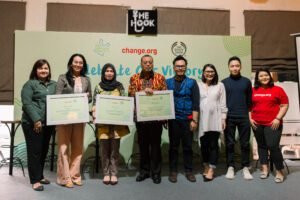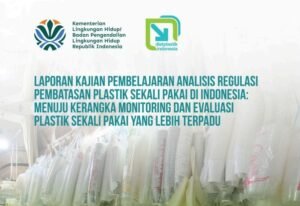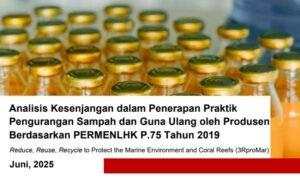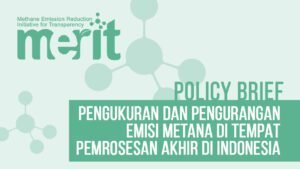Jakarta, 8th September 2020. Gerakan Indonesia Diet Kantong Plastik (GIDKP), Yaksa Pelestari Bumi Lestari (YPBB), and Aliansi Zero Waste Indonesia (AZWI) held a Plastic Free Regional Forum on September 8-9, 2020. This activity is an effort by civil society to appreciate regional initiatives in reducing the generation of plastic waste which contributes to the national target of reducing waste by 30% by 2025 and reducing plastic waste in the sea by 70% by 2025. This activity is held virtually through Zoom Webinar and YouTube.
This forum is divided into three sessions where each session raises topics that reflect a comprehensive waste reduction ecosystem. The first session was held on September 8, 2020 at 09.00 – 11.30 WIB with the topic “The Challenge of Promoting Reuse Shopping Bags”. Press releases regarding this session can be accessed here.
Session 2 of the Forum was held on the same date at 13.00 – 15.00 WIB with the topic “Legal and Environmental Aspects In Planning Regulations for Reducing The Use of Single-Use Plastics”. The session was facilitated by Tiza Mafira of GIDKP and will be preceded by a speech from Mr. Ujang Solihin Sidik, as Head of the Goods and Packaging Subdirection, Directorate General of Waste, Waste Management and hazardous and toxic waste (B3), Ministry of Environment and Forestry.
“Waste management is the obligation of local governments, including plastic restriction regulations. This is guaranteed by law. The Ministry of Environment and Forestry also provides guidance to businesses, especially the food and beverage services and retail industry stipulated in Regulation of the Minister of Environment and Forestry No. 75 of 2019 on Waste Reduction RoadMap by manufacturers. The regulation also mentions clauses on how plastic bags are regulated by local governments, and phasing-out some other types of single-use plastic by 2030. But the Local Government can regulate plastic restrictions first, there is no need to wait for 2030, faster is better.”, said Mr. Ujang Solihin Sidik who also represents Mr. Novrizal Tahar, Director of Waste Management Ministry of Environment and Forestry and as Secretary 1 of the Implementation Team of the National Action Plan on Marine Waste Management.
In conveying the legal and environmental aspects, this session presented speakers from various sectors, namely Mr. Nyoto Suwignyo from Directorate of Regional Development at the Ministry of Home Affairs, Fajri Fadhillah as Head of the Division of Pollution Control and Environmental Damage of the Indonesian Center for Environmental Law (ICEL), and Mrs. Ria Ismaria as an independent environmental consultant.
“The local government has the autonomy to regulate and manage its regions according to the aspirations and interests of its people as long as it does not conflict with the national legal order and the public interest and still pay attention to the conditions, peculiarities, and local wisdom in the implementation of the government as a whole. Thus, local governments can make arrangements and publish policies related to waste management (Reduction & Handling) as part of innovation”, explained Mr Nyoto Suwignyo. “Local governments still have a high waste handling burden so in addition to restricting the use of single-use plastic bags need to target other types of plastic and other aspects of waste management”, he added.
In terms of law, Fajri Fadhillah as Head of the Division of Pollution Control and Environmental Damage of the Indonesian Center for Environmental Law (ICEL), “Based on academic practice, the legislators of waste management laws have a vision that waste management in Indonesia should be done by reducing as much waste as possible as a crucial first step, and when the waste reduction effort is maximized, it may be only the residue that has to be taken to the final processing site should be handled in a way that does not have a bad impact on the environment or public health.” Further, Fajri also adds that, “Some aspects that the District Government needs to consider in limiting a plastic product are when the product is difficult to handle, easily avoidable, and alternatives are available. In general, plastic bags, bottles, polystyrene and sachets are included in those categories and it makes sense to prohibit them.”
The next speaker is Ibu Ria Ismaria who is a Waste Management System Planning Consultant. He stated that, “The objectives in regulating single-use plastics must include the goals to be realized, the scope of the arrangement, the reach and direction of the arrangement.” She also said that At the city level, it is necessary to prepare a road map for various changes in the generation of plastic waste. “As an initial stage, a study of waste generation at the city level is necessary, including plastic waste and product packaging waste. This study will be the basis in determining the policies and strategies of city waste management consisting of reduction and handling. There are three main things in drafting the framework, namely the development of regulatory devices in terms of strengthening investment, careful calculation of investment and operational costs, and the development of campaigns and socialization.”
The Plastic Free Regional Forum will be continued in Session 3 on 9 September 2020 at 09.00 – 11.00 WIB with the topic “Zero Waste Cities Model Solutions in Waste Management Efforts” which will be facilitated by Mrs. Ria Ismaria and will be preceded by remarks from Mr. Rofi Alhanif as Assistant Deputy for Waste and Waste Management of the Coordinating Ministry for Maritime Affairs and Investment and Prigi Arisandi from the Zero Waste Indonesia Alliance, with speakers namely Mr. David Sutasurya from YPBB Bandung, Mrs. Kamalia Purbani as Head of the Bandung City Environment and Sanitation Service, and Mr. Mochamad Ronny as Head Cimahi City Environmental Service. In closing, there will be a response session that will be delivered by Mr. Ujang Solihin Sidik, as Head of the Sub-Directorate of Goods and Packaging, Directorate General of Waste, Waste Management and hazardous and toxic waste (B3), Ministry of Environment and Forestry and Mrs. Intan Suci Nurhati as researchers at the LIPI Oceanography Research Center. The live broadcast of Session 3 can be watched via AZWI’s YouTube channel.
Watch the reruns of the Session 2 Webinar Here.

